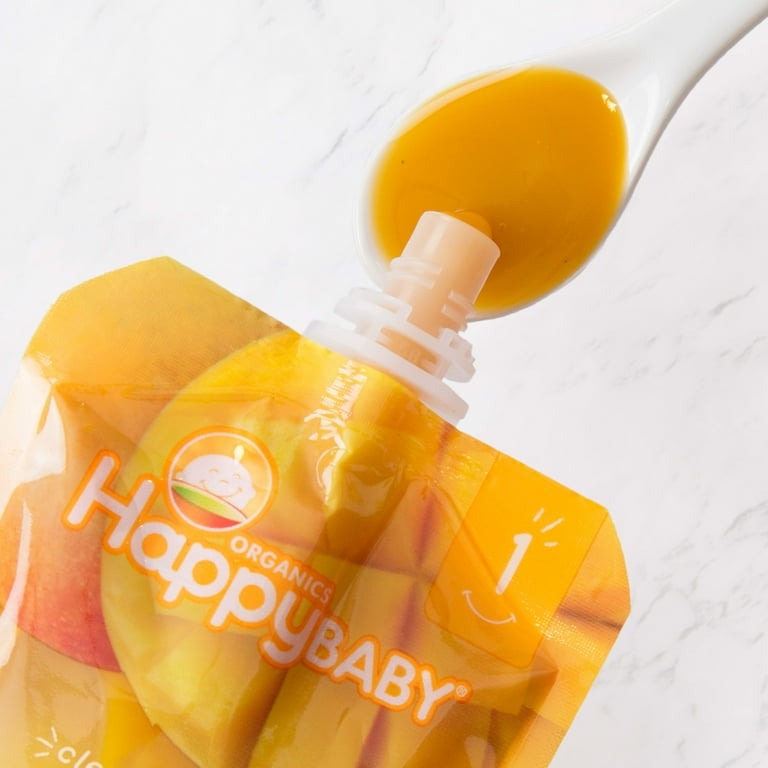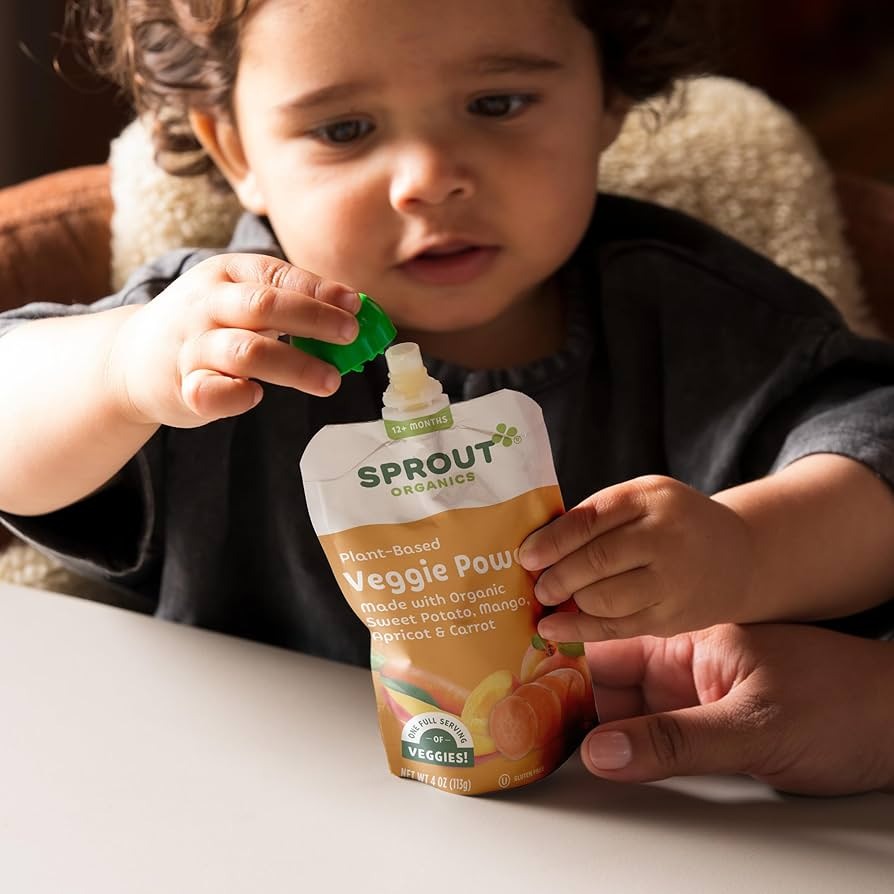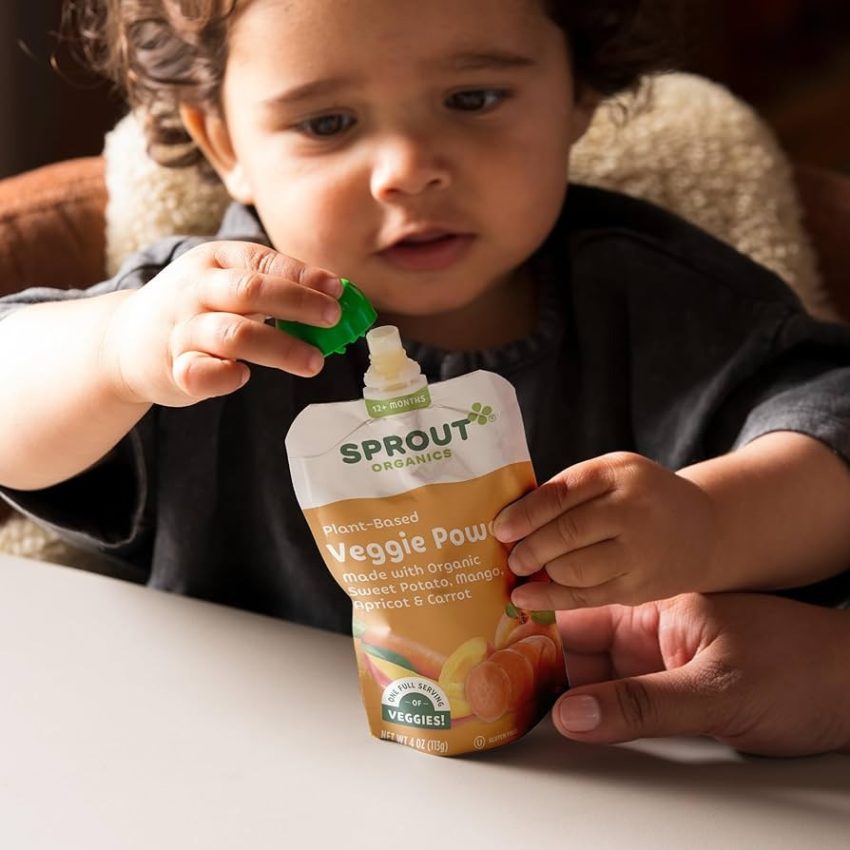Shelf Stability of Packaged Baby Food
Understanding the shelf stability of packaged baby food is crucial for ensuring food safety. Most packaged baby foods, including purees and cereals, are designed to be shelf-stable before opening. This means they can maintain their freshness and edibility for a specified period usually ranging from 12 to 24 months when unopened and stored in a cool, dry place.
Before opening, store these foods away from direct sunlight and heat sources, which can degrade their quality faster. Always check the expiration or best-by dates on the packaging to decide if the food is still safe to consume.
Once opened, the shelf stability changes drastically due to exposure to air and potential contaminants. It’s essential to follow proper storage guidelines post-opening to prevent spoilage and foodborne illnesses. Opened packages, if not stored correctly, are at a higher risk of bacterial growth, which can pose health risks to babies with their developing immune systems.
“How long is baby food good for after opening?” This question is essential not only for safety but also for maintaining the quality and nutrition that your baby requires during their pivotal growth stages. Make sure to use opened baby food within the recommended time frames provided by the manufacturers and keep the opened baby food in a refrigerator to extend its usable life while maintaining safety.
Impact of Refrigeration on Opened Baby Food

Refrigeration plays a key role in keeping opened baby food safe for consumption. Once a package of baby food is opened, bacteria can start to grow. Refrigerating it slows down this growth. Different types of baby food also have varying refrigeration guidelines.When answering “How long is baby food good for after opening?” it is vital to remind yourself of these impacting factors.
Fruits and Vegetable Purees
Fruits and vegetable purees can usually be refrigerated for up to two days after opening. This is a shorter time compared to their shelf life unopened.
Meat-Based Purees
Meat-based baby foods should be used within one day of opening when refrigerated. They spoil faster due to higher protein content.
Mixed Purees
For opened mixed purees, including both meat and vegetables, follow the meat puree guideline. It’s best used within one day of refrigeration.
It is vital to store opened baby food in a refrigerator set below 40 degrees Fahrenheit, as advised by food safety experts. Keep the food in an airtight container to limit exposure to air. Always ensure the lid is secured to prevent contaminants.
Remember to discard any portion of baby food the baby’s spoon touched during feeding. Saliva can introduce bacteria that spread even in the fridge. Serve the food using a clean spoon, and transfer it to a dish before feeding.
If you’re still wondering, “How long is baby food good for after opening?” consider checking the manufacturer’s guidelines for specific information related to the product you’re using.Lastly, write the opening date on the container to track how long it’s been stored. This helps prevent feeding your baby spoiled food. Always err on the side of caution when in doubt about the safety of opened baby food.
Proper Storage Techniques for Baby Food
To keep baby food safe after opening, proper storage is essential. Here’s what you need to know.
Store in the Right Containers
Use airtight containers to store opened baby food. Glass or BPA-free plastic works well.
Keep It Cool
Refrigerate baby food promptly after opening. Set the fridge below 40 degrees Fahrenheit.
Avoid Contaminants
Don’t let the baby’s spoon touch the storage container. Use separate dishes for feeding.
Label It
Mark the date of opening on the container. It helps track how long the food has been stored.
Follow the Guidelines
Adhere to storage timelines recommended by manufacturers or food safety authorities.
Don’t Overkeep
Discard any opened baby food after the recommended time, even if it smells fine.
By implementing these techniques, you can ensure that the baby food remains fresh and safe for your child to consume.
Guidelines for Homemade Baby Food Storage

Keeping homemade baby food safe is key for your baby’s health. Here are the must-know tips.
Proper Refrigeration
Place homemade baby food in the fridge right away. Use it within one to two days.
Airtight Containers
Store purees in BPA-free or glass containers with tight lids. This helps keep food fresh.
Freezer Storage
Freeze extra portions in ice cube trays or small containers. Label with dates to track freshness.
Thaw Safely
Thaw frozen baby food in the fridge, not on the counter. Allow enough time for thawing.
By following these guidelines, you ensure your baby’s food is fresh and safe.
Freezing and Thawing Tips for Baby Food
Freezing baby food can help extend its shelf life. Here are some essential tips for properly freezing and thawing your baby’s food.
Freezing Baby Food
When freezing baby food, use small containers or ice cube trays. These make it easy to thaw only what you need, reducing waste. Ensure the containers are BPA-free or use silicone trays. Label each container with the type of food and the date of freezing. Generally, fruits and vegetable purees can be kept frozen for up to six months. Meat-based purees should be used within two months.
Thawing Baby Food
Thaw frozen baby food in the refrigerator, not at room temperature. Start thawing the food the night before you plan to use it. This slow thawing process helps maintain the food’s texture and nutritional quality. Avoid using a microwave to thaw baby food, as it can heat unevenly.
By following these simple tips, you can ensure that your baby’s food is safely and effectively preserved while maintaining its nutritional benefits.
Risk of Bacterial Contamination and Safety Tips
When baby food gets exposed to bacteria, it can spoil and become unsafe. Here are tips to avoid this.
Keep It Clean
Start with clean hands and surfaces when preparing baby food. Use hot, soapy water to clean.
Avoid Cross-Contamination
Use separate cutting boards for meats and veggies. Keep baby food away from raw food.
Heat Appropriately
Cook food thoroughly. Proper heating kills harmful bacteria. Check temperatures with a food thermometer.
Cool Quickly
After cooking, cool baby food quickly before refrigerating. This limits bacterial growth.
Serve Safely
Don’t feed directly from the container. It can transfer saliva and bacteria back into it.
Store Correctly
Refrigerate opened baby food. Set your fridge below 40 degrees Fahrenheit.
Track Dates
Write the date you opened the food on the container. Helps you keep track of freshness.
By following these safety tips, you can help prevent bacterial contamination and keep baby food safe.
The Dos and Don’ts of Handling Leftover Baby Food

When it comes to leftover baby food, proper handling is key for safety. Here’s a straightforward guide.
Dos for Handling Leftover Baby Food
- Do refrigerate leftover baby food right away.
- Do use airtight containers to keep it fresh.
- Do label containers with the food type and date.
- Do keep leftovers for only as long as recommended (1-2 days for homemade, 2-3 days for fruits and veggies, 1 day for meats).
- Do toss any food that’s been in contact with your baby’s saliva.
Don’ts for Handling Leftover Baby Food
- Don’t leave baby food out at room temperature for over two hours.
- Don’t reuse baby food that your child has eaten directly from.
- Don’t freeze foods in containers not meant for freezing.
- Don’t keep food beyond its safe usage period.
- Don’t heat in containers that may release harmful chemicals.
Remember, when in doubt, it’s better to err on the side of caution and dispose of any questionable leftovers. Keeping these tips in mind will help ensure the food you provide is safe and healthy for your baby.
Expert Insights and FDA Recommendations on Baby Food Preservation
When you open baby food, its shelf life shortens. Expert insights and FDA guidelines can help you keep it safe. Store-bought baby food typically lasts for one to two days in the fridge once opened. The FDA says homemade baby foods should be used within one to two days when refrigerated. It’s important to spoon the food onto a separate dish if you plan to save it. This prevents bacteria from the baby’s saliva from contaminating the remaining food. If your baby has eaten from the jar, throw out what’s left over. For both homemade and store-bought baby foods, don’t keep anything in the fridge for more than two days. Freezing can extend the life of baby food. Make sure to freeze it before any saliva has contaminated it. Baby food pouches should not sit out at room temperature for more than an hour. Remember, bacteria grow quickly at higher temperatures. Always follow package instructions and check with your pediatrician if unsure. They can offer the best advice for your baby’s health. Finally, when in doubt, throw it out. It’s better to discard questionable food than risk your baby’s safety.
